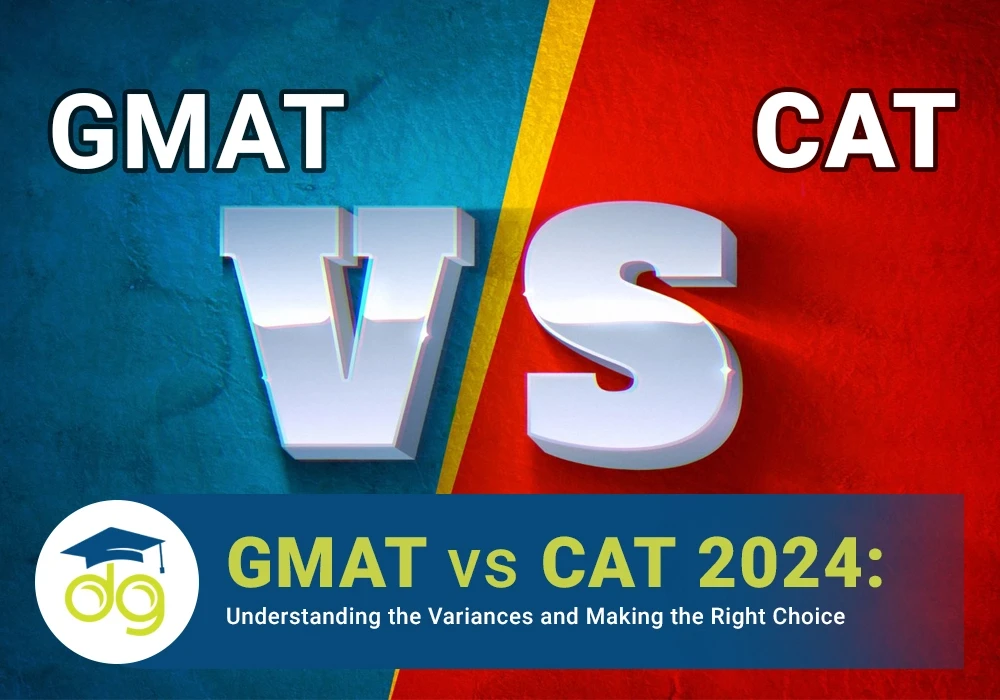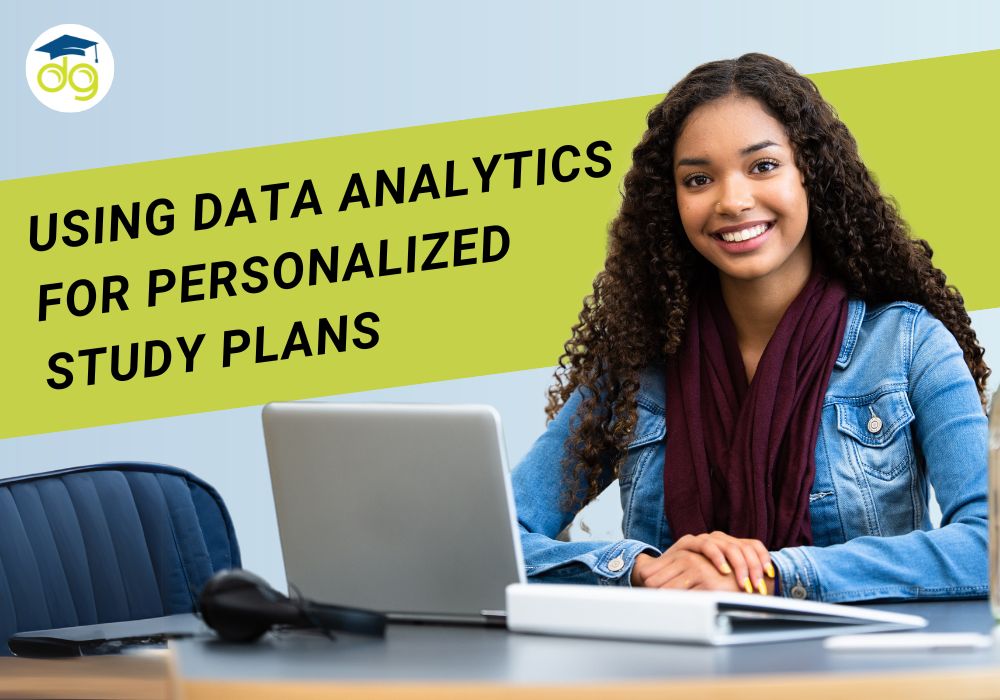Using Data Analytics to Revolutionize Personalized Study Plans for Competitive Exams
How Data Analytics Transforms Learning for Exam Success
In this competitive world of exams, every student has a unique way of learning. The one-size-fits-all approach is no longer favorable to the child's needs as most students strive to be successful in these competitive exams. Every student will have different strengths, weaknesses, and learning styles, making it paramount to personalize their learning strategies. With the advancement in data analytics, insights based on individual learning patterns are now made available to students, thus improving their study experience and hence their exam outcome.
What is Data Analytics in Education?
Data analytics in education refers to the process of collection and analysis of data to enhance and improve learning experiences among students. Data analytics tracks and interprets data on academic performance, engagement levels, and learning behaviors, offering useful insights to help educators and learners alike make informed decisions. Such insights promote the development of personal learning paths that suit every individual's needs for the enhancement of a learner's potential.
Basically, educational data comes from many sources, including test scores, grades, and attendance records to behavioral data like the amount of time a student spends on given topics. This data is important in making personalized study plans, as it indicates areas that a learner may require additional support and facilitates tailoring resources to learning preferences.
How Data Analytics Supports Personalized Study Plans
Data analytics plays a prime role in making tailor-made study plans for the needs of every learner. Analyzing patterns over time of how students are performing helps to point out specific areas where the student is not getting it. This provides an educator, or an automated system, with information to recommend targeted interventions in the form of practice exercises, tutorials, or even videos that zero in on the weak areas.
In addition to the identification of weaknesses, data analytics can be used to optimize learning resources. Therefore, depending on a learner's style, plans may include working with interactive quizzes, instructional videos, or other reading resources so that the student can engage with the material in a manner that best facilitates his or her learning process.
Besides, data analytics can even design optimal study schedules. This will be based on tracking when students are most productive, creating personalized study plans that focus on complex matters during the peak hours of students' focus while keeping easier topics for hours when they may not be as alert. This personalized scheduling helps them learn more effectively and retain their information longer.
Finally, it uses data analytics to give continuous tracking of progress. As the student improves, his/her personal study plan will adjust them towards their improvement. This is with the aim of always forwards and improving, with the student's modified unique study schedule as they continue and improve, giving the best result at the end.
Benefits of Personalized Study Plans Using Data Analytics
Personalized study plans powered by data analytics have numerous benefits. One of the most significant is the improvement in learning outcomes. Given that students will learn better and retain more, doing so is likely to help improve performance in exams. This is due to not spending excessive time reviewing material already learned, thus helping to enhance studies on both efficiency and productivity.
Engagement is another key benefit. Students are more likely to stay motivated and committed to their studies when they feel that their study plan is designed just for them. Personalized learning makes the experience more relevant and less monotonous, which in turn increases a student's interest in the material.
The efficiency of learning and engagement is fostered by personalized study plans. Students can fully utilize their time and resources, focusing their efforts on those subjects or topics where they need the most improvement. Studying becomes much more effective. In addition, students can see their progress with personalized feedback, thus being motivated.
Tools and Technologies for Data-Driven Personalized Study Plans
Platforms like Khan Academy, Coursera, and Skoodos Bridge also use data analytics to offer personalized learning experiences. These platforms monitor a student’s performance and adapt lessons to their proficiency level, ensuring that the content is neither too difficult nor too easy.
AI-based technologies take it to the next step, where through machine learning algorithms, study content can be tailored in real time according to a student's performance. So, with AI-based technology, every learner is probed at his own pace to ensure maximum experience to learn. Similarly, with a study app like Quizlet or Duolingo, data adjusts the difficulty levels and how often the content is changed based on a student's progress and thus presents real-time personalization.
Challenges of Using Data Analytics in Personalized Study Plans
There are numerous benefits to using data analytics in education; however, there are several hurdles to consider. Its chief concern revolves around data privacy and safety. Given the growing amount of student information collected on a daily basis, it will be important to ensure this information is kept safe and not misused. Schools and educational platforms must follow strict regulations regarding how they utilize student information.
Another risk is over-reliance on technology. Data analytics can indeed be a source of powerful insights; however, it's essential not to err on the side of over-reliance on automated, data-driven learning. It's critical to interpret data insights both individually and in the context of broader learning, thereby requiring educators to work with an element of personalized guidance.
The other concern is equity. In many classrooms, all students will not have access to the same technology or platform. The resultant inequality in access to digital tools can perpetuate uneven uses of data in personalized learning, hence reducing the effectiveness of study plans based on data.
Examples and Applications
There are already numerous education learning platforms where data analytics helps enhance the learning outcome. Khan Academy uses data to personalize lessons for students so they are always appropriately challenged. Skoodos Bridge also presents a unique approach for students who are preparing for competitive exams. Here, data analytics is used to create personalized study plans that are specific to an individual's progress, strengths, and weaknesses in preparation for his respective competitive exam.
Students who have followed data-driven study plans reported having better results at exams, being more engaged with the material, and having completed the learning process more effectively. Such success stories show that in competitive exams, the power of personalized learning is to change the approach of data analytics in studying.
Conclusion
In conclusion, utilizing data analytics to create personalized study plans is a game changer for students preparing for competitive exams. It allows students to study smarter by focusing on their individual strengths and weaknesses, ensuring they remain engaged, motivated, and on track to achieve their academic goals.
Educators and students alike should embrace the benefits of data-driven learning, leveraging tools like Skoodos Bridge to create tailored study paths that enhance learning outcomes. Personalized learning not only makes studying more efficient but also helps students gain the confidence and skills needed to excel in competitive exams.
FAQs
What is data analytics in education?
Data analytics in education includes the compilation and analysis of student data. It improves learning outcomes by uncovering underlying strengths, weaknesses, or learning preferences for any individual.
How can Data Analytics to Improve Personalized Study Plans?
Data analytics makes it possible for one to discover the areas in which they struggle and design more fitting study materials and schedules. It will help to optimize learning by matching resources with a student's learning style and pace.
What tools am I able to apply data-driven learning?
Learning Management Systems, such as Google Classroom, Khan Academy, and Skoodos Bridge, and AI-powered technologies customized to a user's understanding of content are well-known tools.
How safe is using student data to learn analytics?
True, it has become important to consider data privacy and security; ethical practices and regulations exist that ensure the protection of student data and account for the norms in applying their de-personalized data on learning analytics.
Can Data Analysis be applied to any subject area?
Yes, data analytics can be applied to any subject, from mathematics to learning languages because it proves to be useful in tailoring the learning experience and thus improves academic outcomes all around the board.
Categories
Archives
Similar Posts

How to Crack CAT Exam in First Attempt: Proven Strategies
by Skoodos Bridge


Is CLAT Coaching worth the Investment for your Success?
by Skoodos Bridge

A Comprehensive Guide to the GATE Exam: Understanding the How’s and Why’s!
by Skoodos Bridge

GMAT Vs CAT 2024: Understanding the Variances and Making the Right Choice
by Skoodos Bridge

NATA Exam 2025 Guide: Benefits and Career Prospects for Aspiring Architects
by Skoodos Bridge


The Guide to IELTS Exam Preparation: What Every Test Taker Should Know
by Skoodos Bridge

Want to Become a Chartered Accountant in India: 5 compelling reasons to make the leap!
by Skoodos Bridge


Leave a Comment